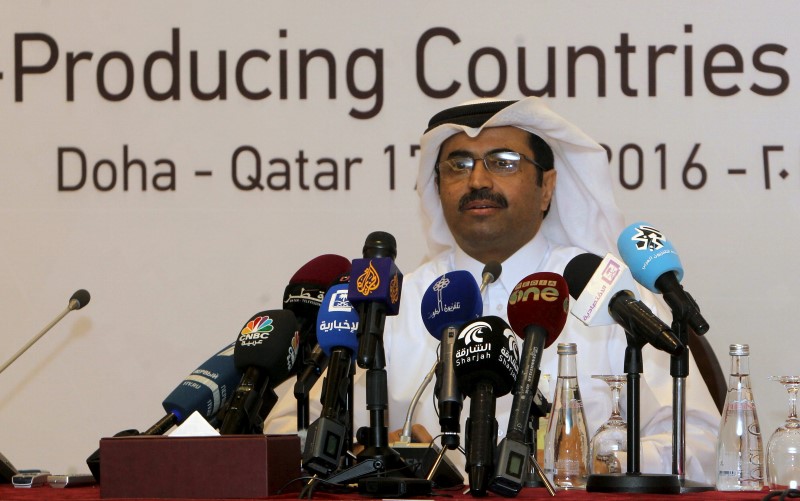DUBAI (Reuters) - Qatar's energy minister, and current OPEC president, said on Monday the oil market is on the path to rebalancing despite the recent decline in global oil prices, adding that OPEC was in continuous talks to stabilise the market.
"The recent decline observed in oil prices and the current market volatility is only temporary," Mohammad bin Saleh al-Sada, Qatar’s minister of energy and industry said in a statement.
"OPEC continues to monitor developments closely, and is in constant deliberations with all member states on ways and means to help restore stability and order to the oil market."
Qatar holds the OPEC presidency for 2016.
An informal meeting of OPEC member countries is scheduled to take place on the sidelines of the International Energy Forum, which groups producers and consumers, in Algeria from Sept. 26-28, the statement said.
Oil prices rose on Monday, lifted by reports of renewed talks by some members of the Organization of the Petroleum Exporting Countries to restrain output.
The price rise came on the back of renewed calls by some OPEC members to freeze production in a bid to rein in output, a demand that non-OPEC oil producing giant Russia was quick to dismiss.
Brent futures were up 15 cents at $44.42 per barrel Monday, though still lag a 2016 high near $53 a barrel hit in June.
Sada said the recent decline in price was "more of an outcome resulting from weaker refinery margins, inventory overhang — particularly of product stocks, timing of Brexit and its impact on the financial futures markets, including that of crude oil".
He said an expected "higher crude oil demand in third and fourth quarters of 2016, coupled with a decrease in availability, is leading the analysts to conclude that the current bear market is only temporary and that the oil price will increase in the later part of 2016."
Some OPEC officials had said a revival of talks on a global oil production freeze could be discussed at an informal meeting of OPEC and non-OPEC in Algeria in September, if oil prices weaken.

OPEC member Iran has been the main opponent of a freeze as it looks to raise its output to levels seen before the imposition of now-ended Western sanctions.